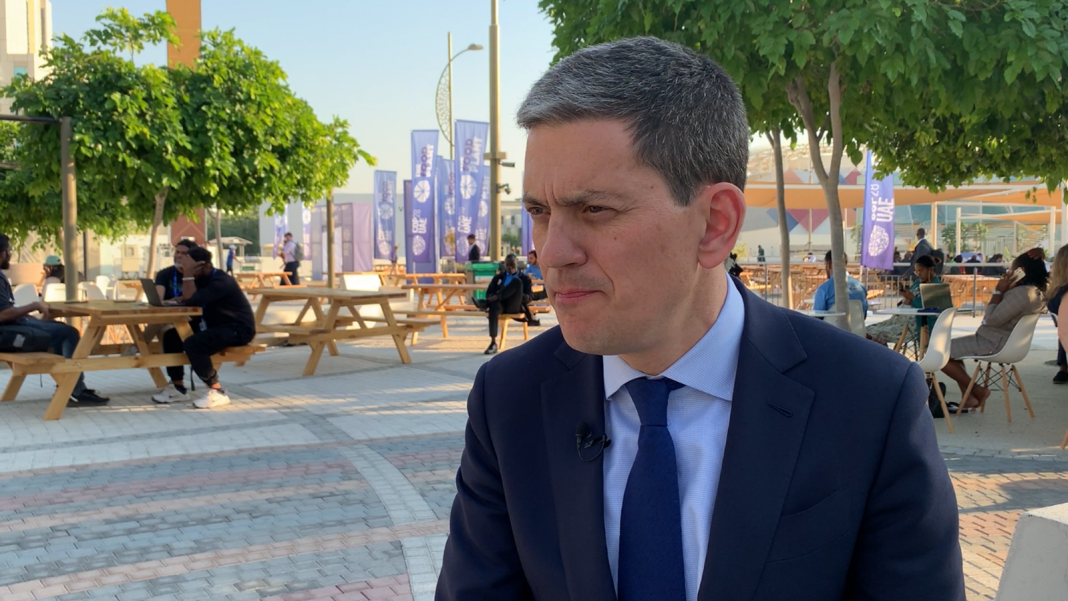Any vow to phase out fossil fuels at COP28 will be “totally” doomed to fail unless the language is backed by concrete actions, David Miliband has told Sky News.
Although they are the primary cause of climate change, a commitment to ditch fossil fuels has never made it into a final pact, after 27 years of United Nations COP climate talks.
At this year’s COP28 in Dubai, the proposed pledge to phase out fossil fuels has gathered more traction than ever amid frustration from developing nations at the slow pace of change.
Even petrostate United Arab Emirates, which is hosting the talks and must corral 197 countries to agree on a final treaty, concedes fossil fuels must be named in the final text.
However, Mr Miliband, the former UK foreign secretary and CEO of the International Rescue Committee, said the pledge would be meaningless without proper financing and other supplementary support.
“The whole purpose of global policy in this area should be to decarbonize, but not to impoverish,” he told Sky News, stressing some nations are economically dependent on fossil fuels.
“And that’s why the investment in the renewables, the alternative ways of powering economic development, is so important.”
Asked if the pledge was doomed without financing and measures to hold leaders accountable, he replied: “Totally.”
Read more:
Dubai is hosting COP28 – but is it playing its part to tackle climate change?
It comes as leaders will today discuss energy at the COP summit, with a slew of announcements on things such as renewables, nuclear power, energy efficiency and methane expected.
Proponents say these pledges could catalyse the action needed to underpin any “fossil fuel phase out”.
The Palau president issued a stark warning. Pic: AP
However, the president of Palau, Surangel Whipps Jr, added his voice to the warning, saying such a pledge is “doomed to fail” if rich countries don’t stump up the long overdue cash they’ve promised.
Developed nations missed a target to send $100bn a year by 2020 to poorer countries to help them make the switch to clean energy. The poorest countries have generally done the least to cause climate change, according to research by think tank IIED.
Mr Whipps said: “Stop talking about it. Show us the money. Commit to it, because we all agree that it has to happen.”
It is also more expensive for developing nations to borrow money for clean power projects to replace fossil fuels, with calls for international financial institutions to be reformed.

Tina Stege represents the Marshall Islands at United Nations climate talks
Tina Stege, climate envoy for fellow Pacific nation the Marshall Islands, said the language in the final text was crucial, but action was “absolutely essential”.
“It doesn’t make sense that we come to have a conference about climate change and yet cannot speak about what’s causing climate change. That is the burning of fossil fuels,” she said.
Alex Scott, who leads climate diplomacy at think tank E3G, said the language on its own does achieve something because it sends “a clear market signal”.
But it will be “more valuable” if countries also agree on how and when they are going to deliver it, “so that we can all hold them to account and scrutinise their plans”.







